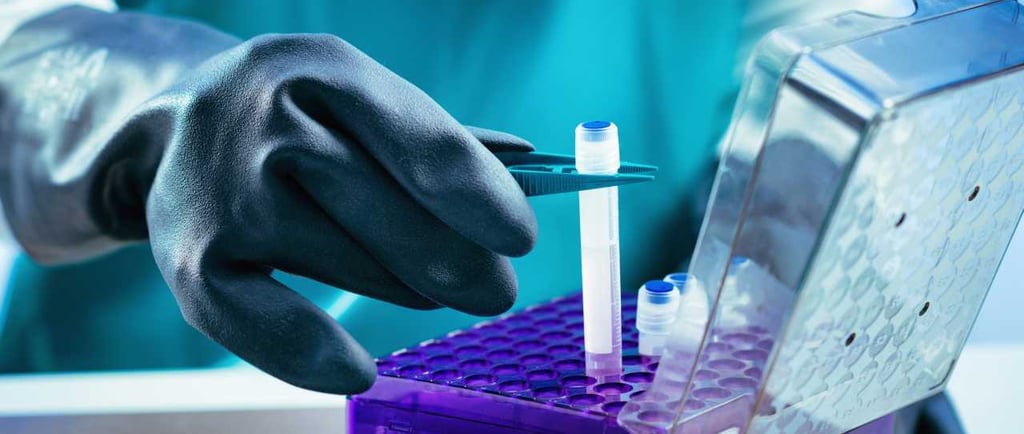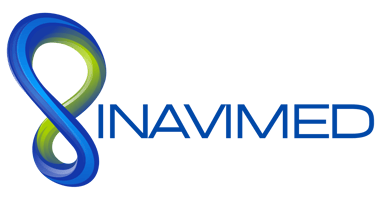Biobank Indonesia: Strategic Pillar for Genetic Research and Pharmacogenomic
Biobanks, vital for genetic research and precision medicine, are collections of biological samples like DNA, blood, and tissue, linked with health and genetic data. Indonesia has advanced in this area with the Ministry of Health's SatuDNA national genome initiative and university biobanks. However, challenges persist, including vast geography, funding limitations, personnel shortages, and ethical concerns. Despite these hurdles, Indonesia's rich genetic diversity offers immense potential for the nation to become a regional leader in genomics and precision health.
7/16/20253 min read


INAVIMED, July 2025 — Ever struggled to find biological samples for your research? This is one of the problems that Biobank could resolve. Biobank is a massive collection of specimens regarding health information. These collections of biological samples are not merely repositories, they are strategic pillars poised to revolutionize genetic research. They can later be used for understanding disease mechanisms, advancing personalized medicine, facilitating population-specific research, and many more.
Why Does This Matter?
On a glance, biobank might just look like glorified freezers. However, they hold pivotal roles in medical research. Various biological samples (DNA, RNA, tissues, blood) linked with genetic information, lifestyle, and family history are stored in biobanks. Three main roles of biobank in biomedical sciences research are:
Molecular and genetic epidemiology
Biobanks are the foundation of exploring molecular and genetic epidemiology, focusing on analyzing the relationship of genetic and environmental interaction in disease progression.
Molecular pathology
Biobanks can also help in understanding molecular pathology, aiming at innovating diagnostic techniques and creating molecular-based disease classification.
Pharmacogenomics
Lastly, biobanks also hold the pivotal role of advancing drug research. They help researchers understand pharmacogenomics, which is how each individual genotype or phenotype responds to drug treatment.
Can This Be Applicable in Indonesia?
Indonesia has recognized the importance of biobanks through several recent initiatives. In 2022, the Ministry of Health launched SatuDNA, a genetic data portal aiming to support precision medicine for seven priority diseases: cancers (breast, lung, cervical, colorectal), infectious disease (tuberculosis), cerebrovascular disease (stroke), metabolic disease (diabetes), pulmonary arterial hypertension (PAH), aging and wellness, and duchenne muscular dystrophy (DMD) with a target of collecting 10,000 genomic samples by the end of 2024. Additionally, biobanks have been established by IMERI FMUI and FK-KMK UGM.
Challenges Ahead
Establishing a biobank in Indonesia is challenging due to its vast archipelagic geography, especially in remote areas. Financial constraints and lack of sustainable funding can further slow progress. There is also a shortage of trained personnel in genomics and data management. Unresolved ethical and legal issues—such as informed consent, data privacy, and unclear regulations—fuel public mistrust. Additionally, cultural and religious sensitivities affect participation in genetic research, and digital infrastructure for secure data integration remains underdeveloped.
Future Resolutions
Biobanks are more than just storage facilities; they are invaluable national assets. For Indonesia, they represent a strategic pillar that can significantly accelerate genetic research, advance personalized medicine through pharmacogenomics, and ultimately improve the health and well-being of its diverse population. By addressing the existing challenges and continuously strengthening the biobanking ecosystem, Indonesia can unlock its immense potential to become a leader in genomic and precision health in the region and beyond
Keywords: biobank Indonesia, genetic research Indonesia, precision medicine Indonesia, pharmacogenomics, molecular epidemiology, biomedical research, genomic data Indonesia, health biobank, Indonesia genome initiative
References:
Kementerian Kesehatan Republik Indonesia. Mengenal Biomedical & Genome Science Initiative (BGSI) [Internet]. Jakarta: Kementerian Kesehatan RI; 2023 [cited 2025 Jul 16]. Available from: https://kemkes.go.id/id/mengenal-biomedical-genome-science-initiative-bgsi
Indonesian Medical Education and Research Institute, Faculty of Medicine Universitas Indonesia. Bio Bank IMERI FKUI [Internet]. Jakarta: IMERI FKUI; [cited 2025 Jul 16]. Available from: https://imeri.fk.ui.ac.id/bio-bank/
Fakultas Kedokteran, Kesehatan Masyarakat dan Keperawatan, Universitas Gadjah Mada. Peresmian Biobank untuk Riset Kesehatan [Internet]. Yogyakarta: FKKMK UGM; 2022 [cited 2025 Jul 16]. Available from: https://fkkmk.ugm.ac.id/peresmian-biobank-untuk-riset-kesehatan/
Knoppers BM, Joly Y. Introduction to Biobanks. In: Goold I, Laurie G, Dove E, Chen H, editors. Routledge Handbook of Genomics, Health and Society [Internet]. Bethesda (MD): National Center for Biotechnology Information (US); 2020 [cited 2025 Jul 16]. Available from: https://www.ncbi.nlm.nih.gov/books/NBK567260/
Staunton C, Slokenberga S, Mascalzoni D. The GDPR and the research exemption: considerations on the necessary safeguards for research biobanks. Eur J Hum Genet [Internet]. 2021 Aug;29(8):1094–102 [cited 2025 Jul 16]. Available from: https://pmc.ncbi.nlm.nih.gov/articles/PMC8275637/
Rahardjo H, Lestari AD. Biobank development in Indonesia: opportunities and challenges. Indones Biomed J. 2022;14(3):234-41.
Aditama TY. Challenges and opportunities in strengthening Indonesia's health system. J Health Policy Manag. 2021;6(2):112-20.
Utomo B, Susilowati T. Ethical considerations for genomic research and biobanking in Indonesia. Southeast Asian J Trop Med Public Health. 2020;51(4):657-65.
Prakoso D, Wijaya A. Human resource development in biomedical sciences for precision medicine in Indonesia. Med J Indones. 2023;32(1):56-63.



